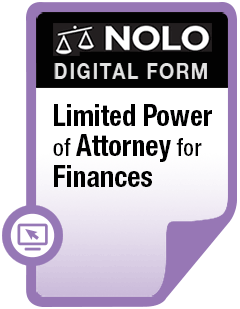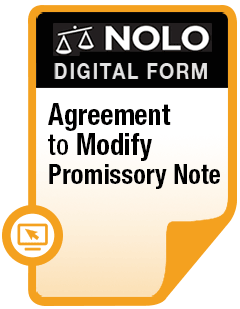Federal and state laws allow you to cancel certain types of contracts within three days.
Several federal laws, such as the federal "cooling-off rule" and the "three-day cancellation rule," allow you to cancel certain contracts within a few days of signing them. These laws apply to contracts made during door-to-door or trade show sales, contracts for home equity loans, or delayed mail-order or internet purchases.
In addition, some state laws allow you to cancel contracts for health club memberships, dating services, and weight loss programs, among other contracts.
How the Cooling-Off Rule Works
A federal law allows consumers to cancel contracts made with a door-to-door salesperson or anywhere other than the seller's normal place of business within three days of signing. The three-day period is called a "cooling off" period.
You might use that law after hastily agreeing to have someone repave your driveway, deliver lawn fertilizer, or put a new roof on your house. You can cancel these contracts simply because you've changed your mind. Every state has enacted a similar law.
The Cooling-Off Rule Applies to Door-to-Door and Trade Show Sales
Under the Federal Trade Commission's (FTC's) cooling-off rule, you have until midnight of the third business day after a contract was signed to cancel either of the following:
- a door-to-door sales contract for $25 or more (as long as the goods or services are primarily intended for personal, family, or household purposes) or
- a contract for $130 or more made anywhere other than the seller's normal place of business—for instance, at a sales presentation at a hotel or restaurant, outdoor exhibit, computer show, or trade show. (16 C.F.R. § 429.1, § 429.0).
Exceptions to the Cooling-Off Rule
This rule doesn't apply to mail, online, or telephone sales or sales involving real estate, craft fairs, insurance, and securities. It also doesn't apply to cars, vans, trucks, or other motor vehicles sold at temporary locations if the seller has at least one permanent place of business. (16 C.F.R. § 429.3).
How to Cancel a Contract Under the Cooling-Off Rule
The seller must give you a cancellation form at the time of sale. So, to cancel, fill out the form and send it to the seller. (If you didn't get a form, send a letter.) Mail your cancellation by certified mail, return receipt requested.
The cancellation must be post-marked before midnight of the third business day after the contract date. Saturday is considered a business day, but Sundays and federal holidays aren't.
How the Three-Day Cancellation Rule Works
Under another federal law, the "three-day cancellation rule," you have until midnight of the third business day after a contract was signed to cancel a home improvement loan, a second mortgage, or another loan where you pledge your home as security (except for a first mortgage). (15 U.S.C. § 1635).
Day one for the three-day cancellation rule starts after all the following things happen:
- you sign the credit contract (usually a promissory note) at closing
- you get a Truth in Lending disclosure form that includes the APR, finance charge, amount financed, and payment schedule, and
- you get two copies of a Truth in Lending notice explaining your right to cancel.
For example, if you took out a home equity loan on Tuesday, but get cold feet, you have until midnight on Friday to cancel. Again, Saturday is considered a business day, but Sundays and federal holidays are not.
Exceptions to the Three-Day Cancellation Rule
This law doesn't allow you to cancel a contract for a mortgage you got to purchase your home or a vacation or second home. (15 U.S.C. § 1635).
How to Cancel a Contract Under the Three-Day Cancellation Rule
The lender must tell you about your right to cancel and must give you a cancellation form when you sign the loan papers. This three-business-day period may be extended for up to three years if the lender violated an important part of the law, such as if you didn't get a Truth in Lending disclosure form with key information about the credit contract or two copies of the notice about your right to cancel or if the disclosure or notice was incorrect. (12 C.F.R. § 1026.23).
Mail, Internet, or Telephone Order Merchandise Trade Regulation Rule
When you order goods by mail, phone, internet, or fax, the Federal Trade Commission's "Mail, Internet, or Telephone Order Merchandise Trade Regulation Rule" (16 C.F.R. § 435 and following) requires that the seller ship to you within the time promised or, if no time was stated, within 30 days. This rule does not apply to magazine subscriptions (except for the first shipment) or orders for seeds or plants.
If the seller can't ship within those times, the seller must send you a notice with a new shipping date and offer you the option of canceling your order and getting a refund or accepting the new date. If you don't respond, the seller can treat your silence as an agreement to the new shipping date.
If you opt for the new shipping date, but the seller can't meet it, the seller must send you another notice requesting your agreement to yet a third date. The seller must automatically cancel the order and refund your money if you don't respond to the notice (silence doesn't count as agreement).
The seller must issue the refund promptly—within seven working days if you paid by cash, check, money order, or by credit where a third party is the creditor (or by any other method except credit where the seller is the creditor) and within one billing cycle if you charged your purchase and the seller is the creditor.
State Laws Often Apply to Certain Goods or Services
In addition, many states allow you to cancel written contracts covering the purchase of certain goods or services within a few days of signing. Examples include contracts for dance or martial arts lessons, health club memberships, dating services, weight loss programs, timeshare properties, and hearing aids.
Call your state consumer protection agency or talk to a local attorney to find out what contracts, if any, are covered in your state.
What to Do If a Seller Violates a Cooling-Off, Three-Day Cancellation, or Other Rule
If you think a seller has violated the FTC's cooling-off rule, report it to the FTC at ReportFraud.ftc.gov, your state attorney general, and your local consumer protection agency. You can report violations of the three-day cancellation rule to your state attorney general, local consumer protection agency, or the Consumer Financial Protection Bureau.
If you paid with a credit card and have a billing dispute, you can dispute the charges.
And if you need help enforcing your cancellation rights, consider talking to a lawyer.
Talk to a Lawyer
Need a lawyer? Start here.
How it Works
- Briefly tell us about your case
- Provide your contact information
- Choose attorneys to contact you
- Briefly tell us about your case
- Provide your contact information
- Choose attorneys to contact you



